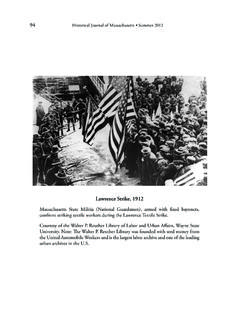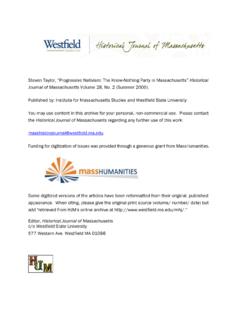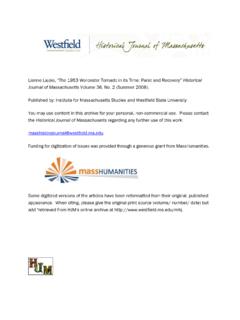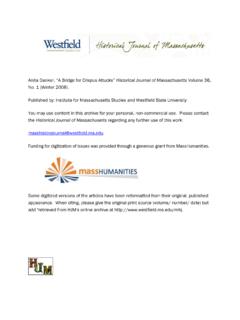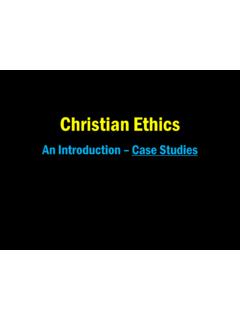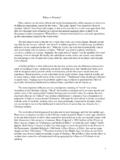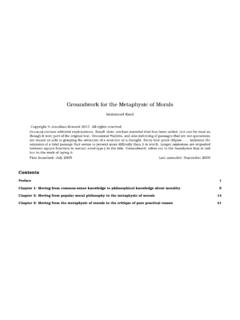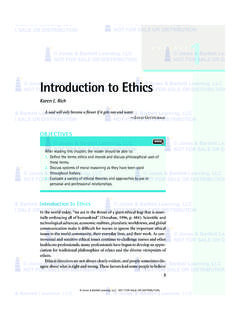Transcription of Published by: Institute for Massachusetts Studies …
1 Gerald Vaughn, Ralph Waldo Emerson s Mentor at Harvard Historical Journal of Massachusetts Volume 35, No. 1 (Winter 2007). Published by: Institute for Massachusetts Studies and Westfield State University You may use content in this archive for your personal, non-commercial use. Please contact the Historical Journal of Massachusetts regarding any further use of this work: Funding for digitization of issues was provided through a generous grant from MassHumanities. Some digitized versions of the articles have been reformatted from their original, Published appearance. When citing, please give the original print source (volume/ number/ date) but add "retrieved from HJM's online archive at Ralph Waldo Emerson s Mentor at Harvard: Professor Levi Frisbie, Jr.
2 By Gerald F. Vaughn A day after the death of Harvard professor Levi Frisbie, Ralph Waldo Emerson, the great essayist, poet, and philosopher who studied under Frisbie at Harvard, was writing in his daily journal of men with minds of republican strength and elegant accomplishments. Such a one died yesterday, Professor Frisbie will hardly be supplied by any man in the community. 1 Terence Martin writes: Deeply influential as a teacher, Levi Frisbie was the first Alford Professor of Natural Religion, Moral Philosophy, and Civil Polity at Harvard (1817-1822). His Inaugural Address (1817) indicates his regard for the ideas of Common Sense philosophy, Indeed, Scottish realism, adapted to circumstances as it could be, fit very well the provisions of the John Alford estate for establishing a chair of philosophy.
3 It could encourage religious and civic responsibility by reminding man of his duties as a human being and by showing the coincidence between the doctrines of revelation and the dictates of reason, 1 Ralph Waldo Emerson, Journals of Ralph Waldo Emerson with Annotations, 1820-1824. Edited by Edward Waldo Emerson and Waldo Emerson Forbes (Boston: Houghton Mifflin Company, 1909), 161-162, footnote 1. Ralph Waldo Emerson s Mentor at Harvard 79 never losing sight of the absolute necessity and vast utility of a divine revelation.
4 John Alford, who died in September 1761, endowed this chair by his will. However, not until 1817 had sufficient funds accumulated to make the first Josiah Quincy, Harvard class of 1821, studied under Frisbie and went on to become president of Harvard. In Quincy s history of Harvard University, he wrote: Few men have left deeper traces of their moral and intellectual excellence in the memory of their contemporaries than Mr. Frisbie. In the collegiate circle in which he moved, he was the object of universal confidence and affection. He united a classic taste with great acuteness of intellect and soundness of judgment; and with a mind highly gifted and highly cultivated, rich in the powers of conversation and research, he regulated his life by a standard of moral and religious principle exquisitely pure and elevated.
5 Writing many years later, Quincy also said of Frisbie: He had lost the use of his eyes for purposes of study, but the clearness and condensation of his thought, as well as the exquisite finish of the language in which it was conveyed, showed that his mind had not suffered from the Samuel Gilman, another of Frisbie s former students, wrote: 2 Terence Martin, The Instructed Vision: Scottish Common Sense Philosophy and the Origins of American Fiction (Bloomington: Indiana University Press, 1961), 17. 3 Josiah Quincy, The History of Harvard University, Vol.
6 II (Cambridge: John Owen, 1840), 328; Quincy, Figures of the Past (Boston: Little, Brown and Company, 1926 [first Published in 1883]), 32. Historical Journal of Massachusetts , Winter 2007 80 In 1817 Levi Frisbie, a name dear to the scholars of his own generation,..was transferred to the new chair of Alford Professor of Moral Philosophy, which, for five years preceding his death, he adorned with a felicity of analysis, and a charm of eloquence, rarely surpassed. In recognition of his reputation as a scholar, Frisbie was elected a Fellow of the American Academy of Arts and To what extent was Frisbie Emerson s mentor at Harvard?
7 The evidence is circumstantial, yet strong and convincing, that Frisbie was instrumental in Emerson s intellectual development. Ralph L. Rusk writes of Emerson: Essays and themes were to him the most exciting academic exercises. But the study of philosophy, though Dugald Stewart s elementary philosophy and William Paley s moral philosophy were required texts in both junior and senior years, could stir him. He was even enthusiastic about Stewart s success in making a textbook glamorous and was struck by what he regarded as the Scot s brilliant promise of effects that were to follow from the new analysis of the human While a student a Harvard, in 1820 and 1821, Emerson wrote two Bowdoin Prize essays, The Character of Socrates and The present State of Ethical Philosophy, neither of which was Published at the time.
8 Regarding the latter essay, D. H. Meyer declares: In this essay, Emerson announced that in the nineteenth century ethical Studies would be called upon to perform an important social Emerson called for a public ethic to guide the liberated conscience. 4 Samuel Gilman, John Brazer, , in Annals of the American Unitarian Pulpit. Edited by William B. Sprague (New York: Robert Carter & Bros., 1865), 505. 5 Ralph L. Rusk, The Life of Ralph Waldo Emerson (New York: Charles Scribner s Sons, 1949), 80. Ralph Waldo Emerson s Mentor at Harvard 81 Though Emerson s prescient plea was not heard outside the walls of Harvard, his hope was largely realized as moral philosophy came to hold an exalted position in the debate on public issues throughout most of the nineteenth Emerson s essay on the present state of ethical philosophy is most indicative of what he had learned of moral philosophy while at Harvard.
9 For that reason this essay will be discussed carefully and in depth here before turning to, and discussing at length, the role of Professor Levi Frisbie, Jr. Emerson s essay emphasizes that fundamental principles are taught by the moral Sense, and no advancement of time of knowledge can improve them. This would seem to be due to the intuitive and decisive nature of the moral Sense, an intuition by which we directly determine the merit or demerit of an action. Because he really was examining the state of then-present moral philosophy, which after Frisbie he called moral science, and moral philosophy was more familiar in usage than ethical philosophy, the following discussion will tend to substitute moral as synonymous and interchangeable with ethical except when a direct quote of Emerson is Starting out where he left off in his previous year s essay on the character of Socrates, Emerson outlines briefly the slow but steady evolution of moral philosophy from the ancients to the then-modern.
10 He suggested the evolution was slow because Ethics were not thus early separated from the immature, misunderstood sciences of logic and date the reduction of ethics to anything like a separate system from the time of Socrates. He groups the Greek philosophers Socrates, Aristotle, and Plato as alone among the sons of Adam, qualified to Institute and methodize the science of morality. 8 Following that systematization of moral science, Emerson credits the Stoics, principally Zeno, Epictetus, Arrian, and Marcus Antoninus as 6 Ralph Waldo Emerson, Two Unpublished Essays, with introduction by Edward Everett Hale (Boston: Lamson, Wolffe & Co.)

